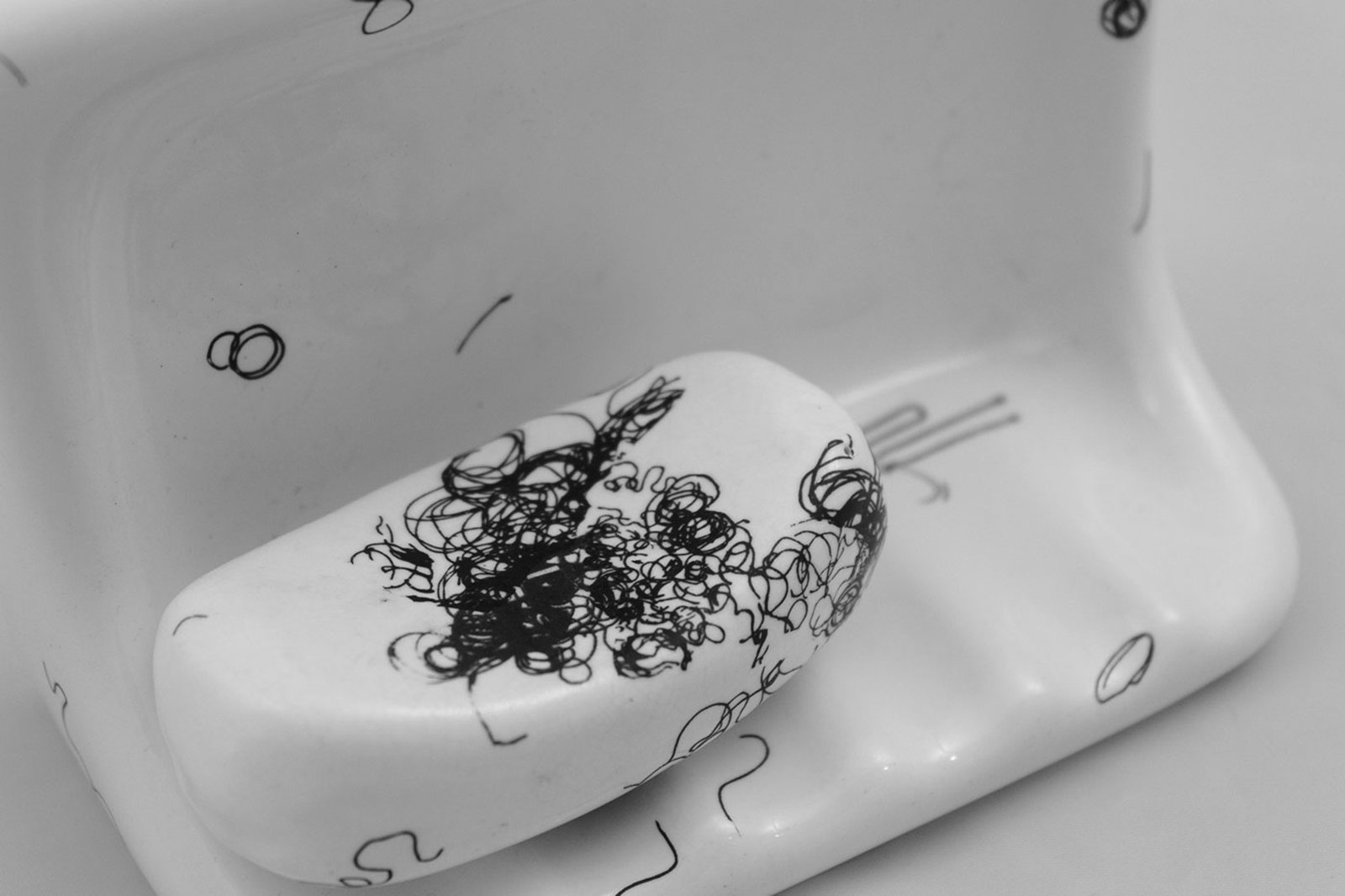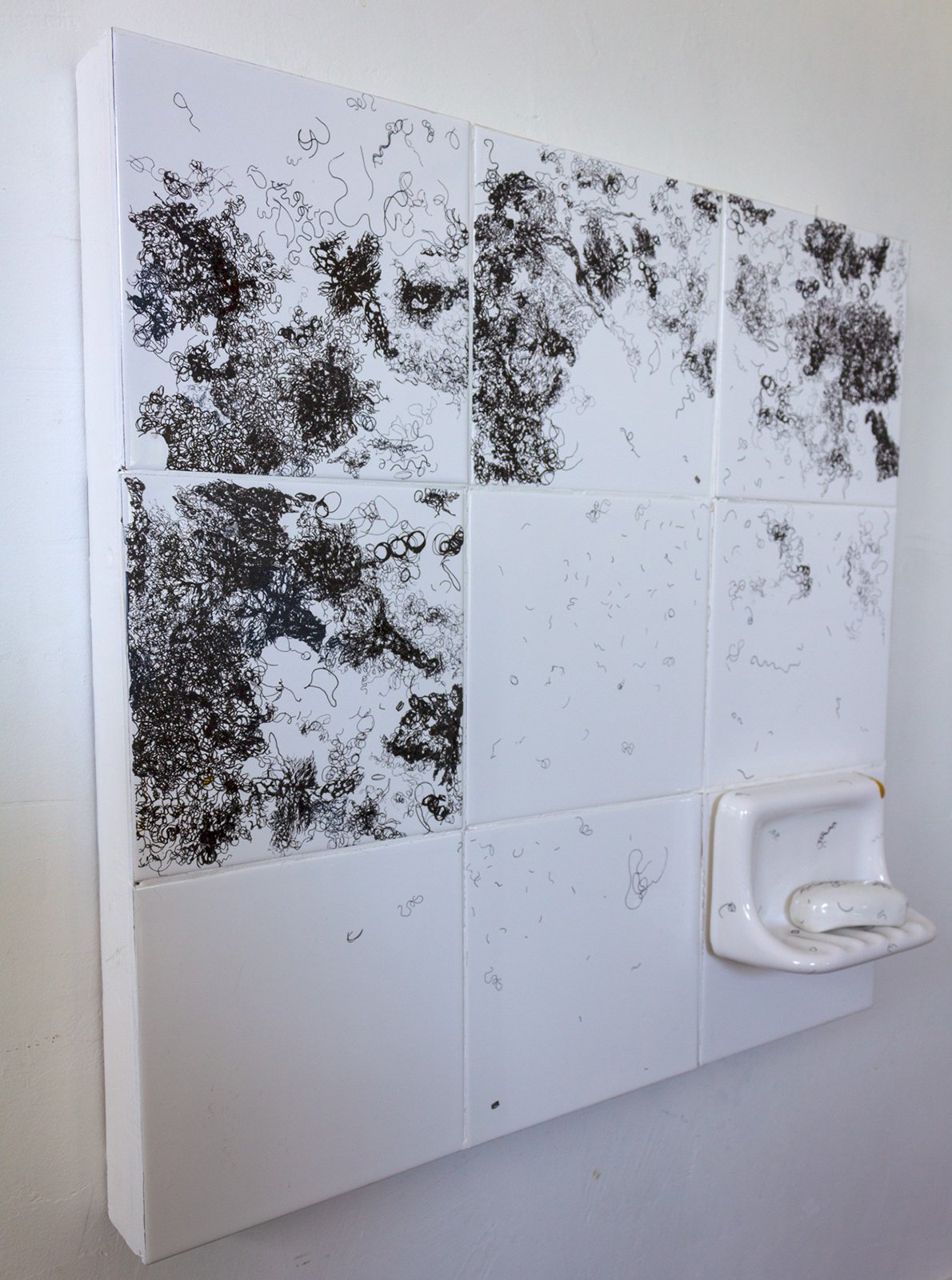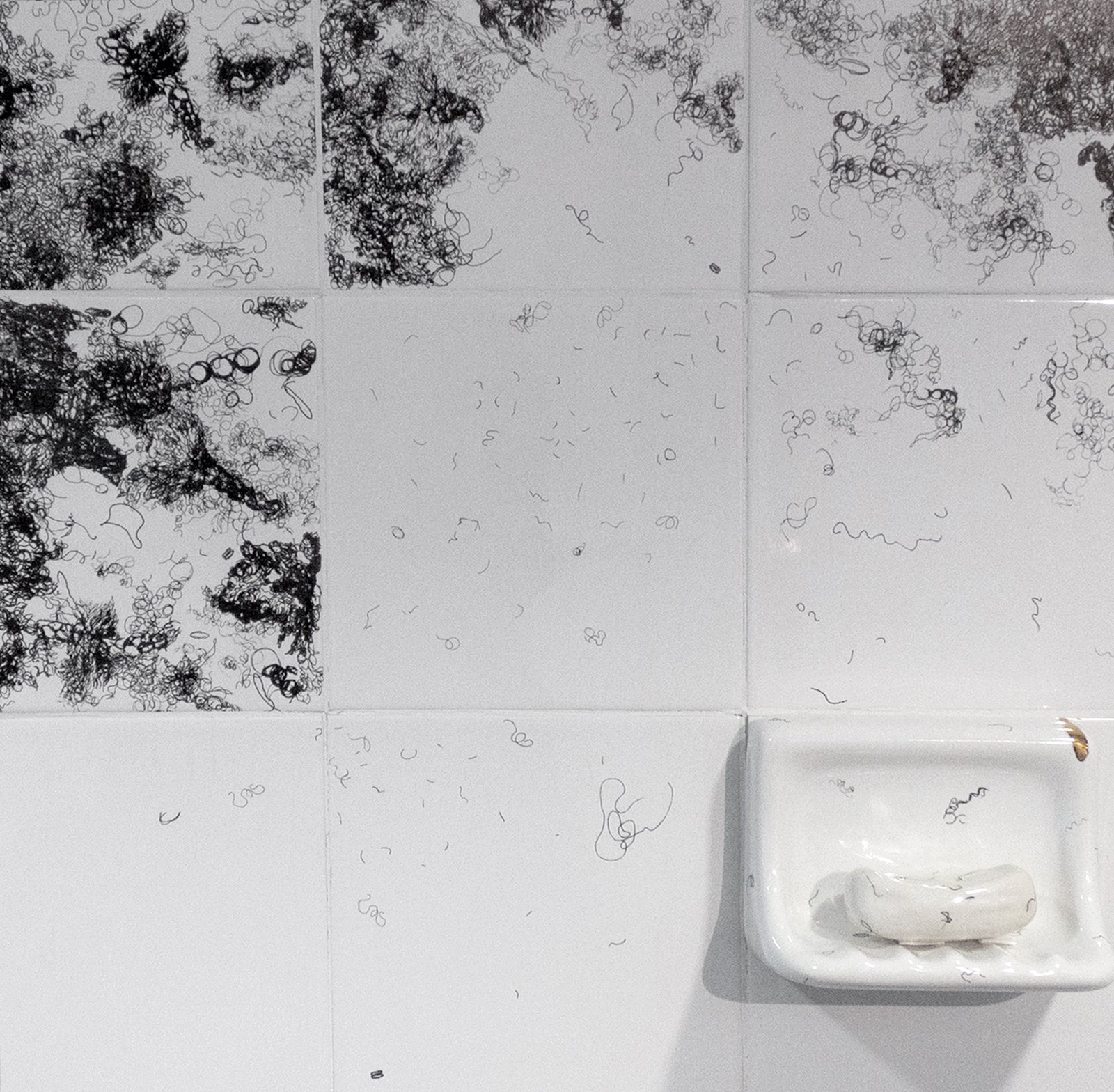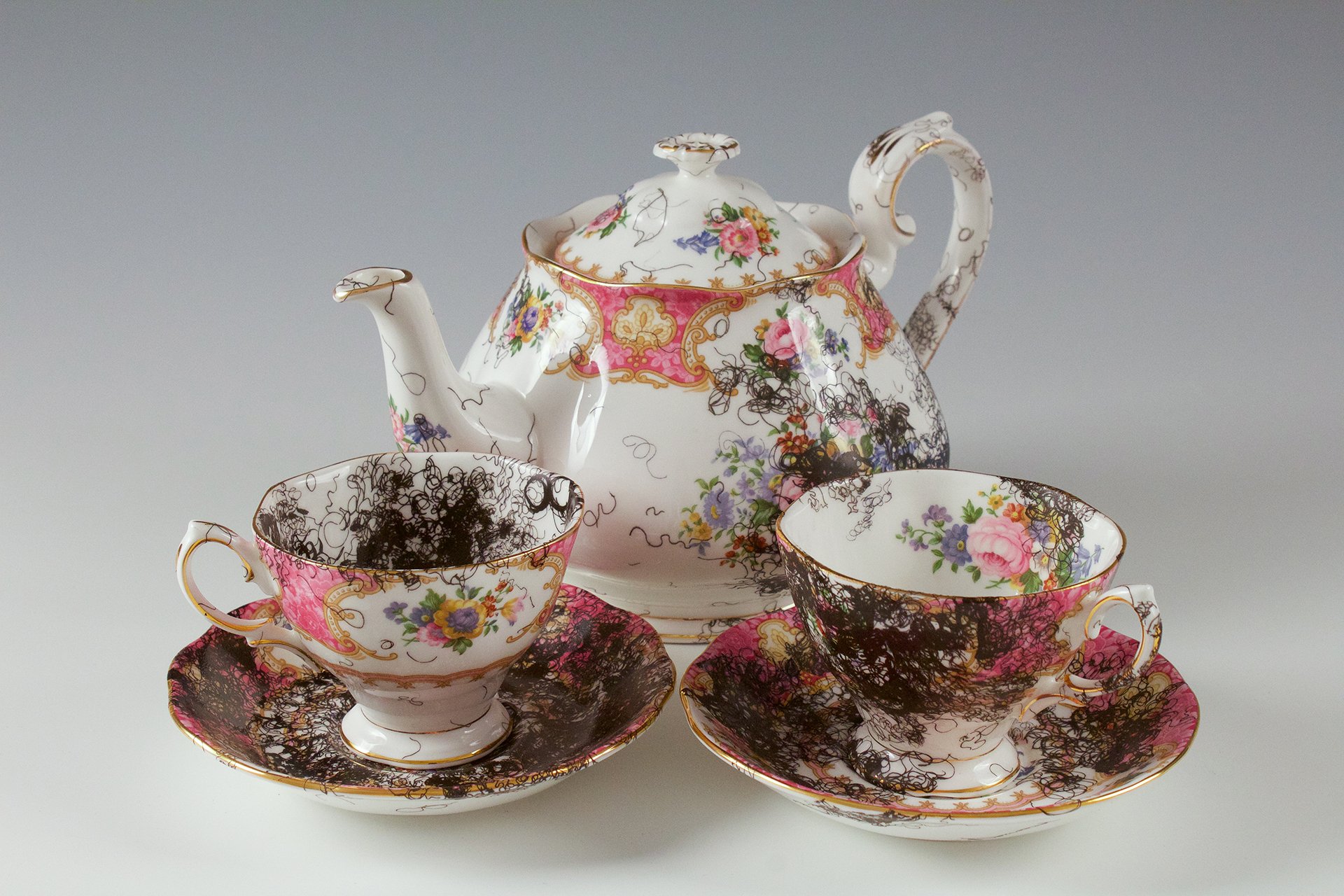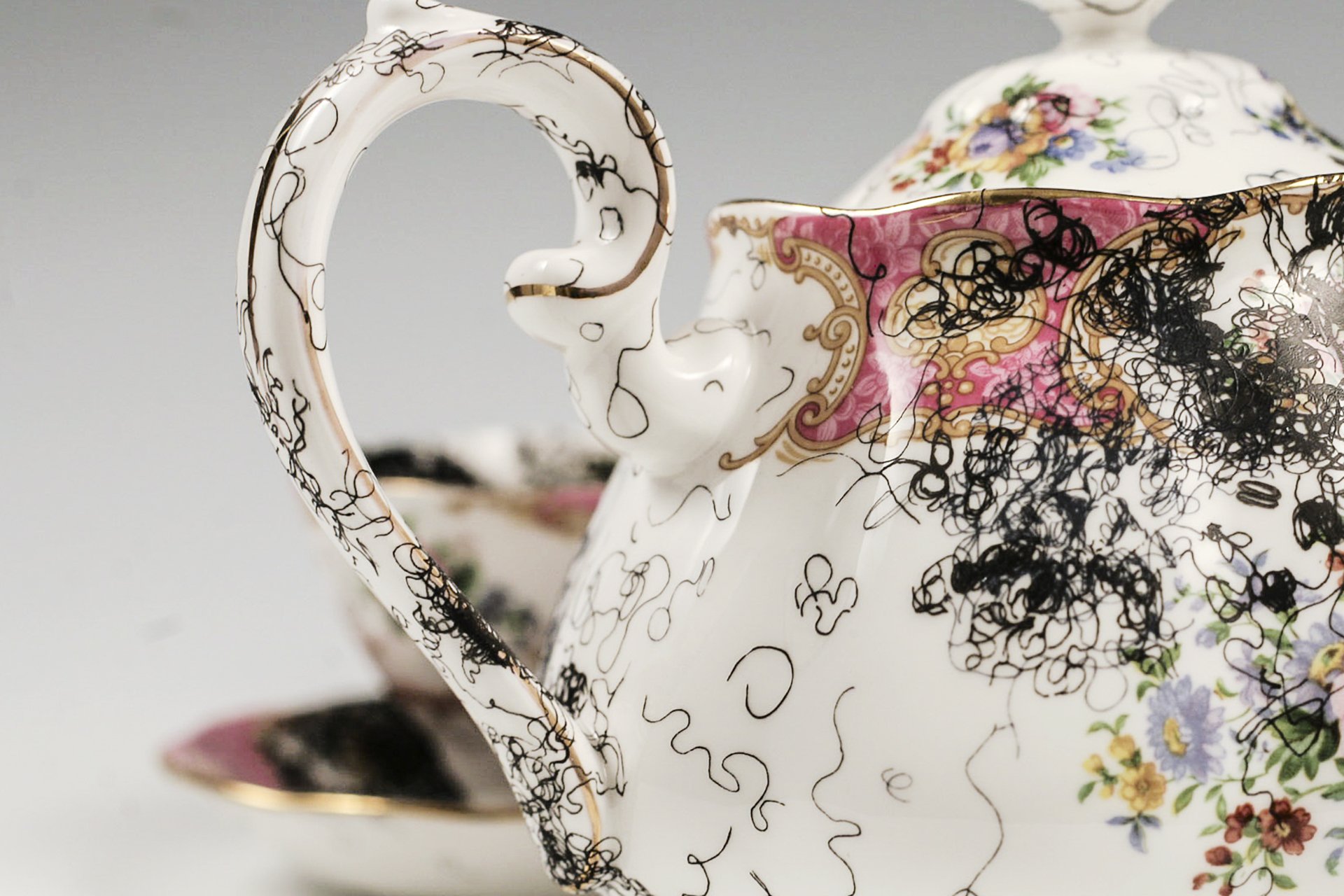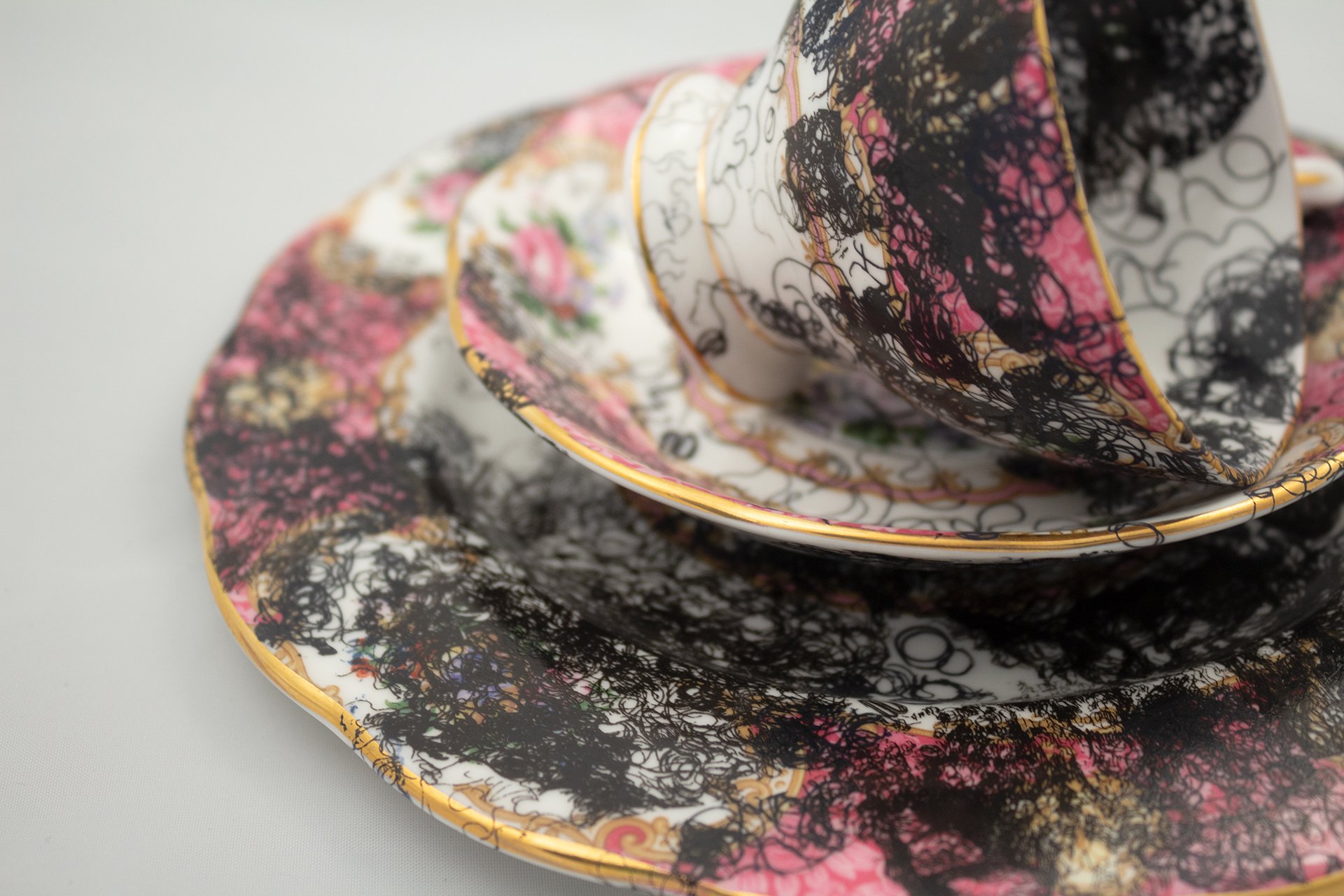Sharon Norwood, Drawing in Permanent Spaces, 2018. Custom decal drawings on ceramics. Courtesy of the artist
The tiling in my bathroom is an impossible surface to wash properly. Recently, in some desperation, I wrote to my mother to ask her how she manages to clean hers correctly. She spoke to me of vinegar, of rinsing in many steps. I followed her instructions and I still think I can see traces of soap. How to untangle oneself from the residue?
I aspire to the immaculate; without exception, I fail to achieve it. I put tea tree oil and white vinegar in a bucket of hot water, I vacuum my bathroom, and then mop it. I wash, scrub, polish, the surfaces stay clean for a few moments, then I do my make-up over the sink, I take my shower, I do my hair, I live and my hairs collect on the ground, they’re pretty, in whirlpools, in corkscrews. Black on white, they could not be more apparent, just like their shapes, tight curls that contrast with the angular geometry of the floor tiles and those of the shower. Most of the time I try to gather them up, but sometimes I want to leave them where they are. My hair isn’t dirty, it has been treated to many acts of care—detangler, gentle shampoo, revitalizsing masks, leave-in conditioner, hydrating treatments, balms, oils: I know these steps by heart, a ritual I follow. All this attention, while simultaneously erasing their residual presence as conscientiously as possible from the spaces I pace.
The Jamaican-born Canadian artist Sharon Norwood works the aesthetic of Black hair into her sculptures and installations. We can consider her series Hair Matters, in which black curls parasitically overtake ornamental English teacups: tea, the colonial symbol par excellence, becomes inhabited by the bodies of slaves. Who would wet their lips with it now? In Drawing in Permanent Spaces, the bathroom wall she presents could be my own if I didn’t rid it of the strands that I lose during my careful detangling in the shower. Like many people, I stick my stray hairs to the shower wall as I wash, then ball them all up and throw them away. If I instead accepted their accumulation, their proliferation, the space would bloom with strands of black, playfully superimposed on top of each other. Norwood leads me to dream of what it would mean to refuse the formula that I perform and that seems to me like an inheritance to reconsider, in which the hair of Afro-descended people is supposed to be subdued, straightened. Above all, to not take up too much space. To be erased.
Sharon Norwood, Hair Matters, 2018. Custom decal drawings on vintage china. Courtesy of the artist.
The bathroom, site of purification, of purity, where we wash our bodies along with our sins, becomes, in Norwood’s work, parasitically inhabited by hair, which comes to dwell—or rather squat in the ceramic whiteness, without any desire to hide itself. It could be contamination, certainly it is a palimpsest: the space is redefined by these hairs that seem to be animated by their own vitality, in a tableau in which resides a paradoxical, liminal life—the hairs die once they leave their follicles, but continue nonetheless to grow. Here, they are doubly dead, because they are detached from the bodies that grew them—but they continue to move. The work asks us to imagine a world in which Black bodies come to possess spaces where up until now they’d been forced to erase their presences. The hairs are therefore haloed with a disruptive quality that can only be political. In this bathroom, even the soap is penetrated by little hairs that have slipped into it: from now on, when we wash ourselves, we will feel the roughness of the keratin. And so what, what is there to worry about? This white soap carries a trace of blackness, but it isn’t any less usable. Who is game to try it?
Norwood’s work is all in black and white, save for a touch of gold. On the soap holder there is in fact a golden dribble, a stain, that also serves to contravene the otherwise hegemonic order of all bathrooms—this splash should not be there, and yet, it is. It speaks of failure, of blundering, but its colour harkens to a certain majesty. It too invites us to disinvest from the bathroom and its purity, while sanctifying it, crowning it, like a transgression: the stain. In this gesture, which undoes and constructs, clarity blooms, making me want to undo my too-tight chignon, and to spread little frizzes wherever I go, signs of my presence that declare: I exist.
Translation: H Felix Chau Bradley
Sharon Norwood is a Canadian artist of Jamaican ancestry raised in Toronto. She currently maintains her art practice between Florida and Georgia. Sharon holds a BFA in Painting from the University of South Florida, and an MFA in Studio Art from Florida State University. She has exhibited in Canada and internationally in Germany, Jamaica, and the United States. Her noted achievements include lecturing at Museum of Fine Arts, St. Petersburg, Florida, and participation in the 2012 and 2017 iterations of the Jamaica Biennial, and 2016 Atlanta Biennial. Sharon is the recipient of numerous awards.
Author, editor and translator, Chloé Savoie-Bernard has, among other things, published Des femmes savantes (Triptyque, 2016), Sainte Chloé de l’amour (Hexagone, 2021) and led the collective Corps (Triptyque, 2018). As of fall 2022, she will occupy a professorial position in literature at Queen’s University.

